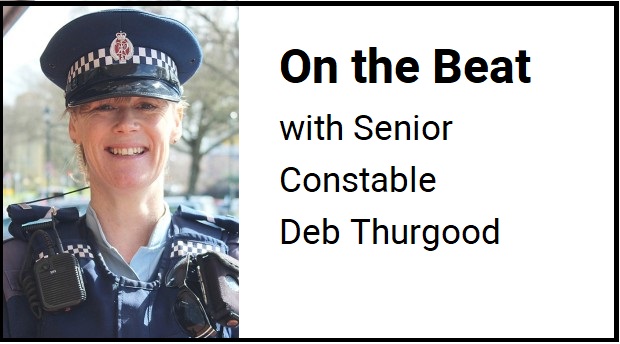
 Hello again, as I write, I am one of the many who have succumbed to the winter flu (luckily not Covid19). Doctors say it is very prevalent at the moment, so I hope that you are all keeping warm and managing to stay healthy and well.
Hello again, as I write, I am one of the many who have succumbed to the winter flu (luckily not Covid19). Doctors say it is very prevalent at the moment, so I hope that you are all keeping warm and managing to stay healthy and well.
Family harm incidents are a daily occurrence in our district. It is important to remember that family harm is not just physical abuse and includes emotional, psychological and sexual abuse too. This could take the form of controlling behaviour (for example, who you talk to or spend time with, what you wear, threats or intimidation around failure to comply with an offender’s wishes.).
Emotional abuse is characterised by constant criticism/undermining of a person’s confidence, putdowns, belittling comments (in private or in front of others, sometimes under the guise of a joke) or gaslighting.
Family harm offenders often also damage property (punching holes in walls) or threaten/injure family pets as a way to intimidate and control those in the household.
Perhaps more prevalent in elder abuse situations, financial abuse may also occur, where a person is manipulated or threatened into signing over financial access or assets. In all scenarios, isolation of the victim from friends and family is common.
When Police attend a family harm incident, where a situation warrants it, we have the option of detaining the aggressor and serving them with a Police Safety Order (PSO). This can be put in place for up to a maximum 10 days. A PSO is designed to give parties time to make decisions and for appropriate support to be initiated. It also allows time for a victim to apply for Protection Order where appropriate.
Once served with a PSO, the person served the order (the bound person) may not contact, harass, threaten or intimidate the protected person directly or indirectly (via someone else) for the duration stipulated.
They must leave and stay away from the address occupied by the protected person (even if it is a place in which they have an interest).
Children are automatically covered by the PSO and any parenting order arrangements are suspended in favour of the protected person for the duration of the PSO. If the bound person breaks these conditions, they may be arrested to appear before the court and an extension of the PSO usually results.
As a next step, a Protection Order may be issued upon application to the Family Court. A Protection Order stipulates that the respondent may not be violent (inflict or threaten to inflict physical, financial, psychological or sexual abuse on the applicant or children on the order, nor encourage others to do so). There is to be no contact permitted (unless the couple are still living together) or in accordance with strict conditions. They may not possess firearms or weapons – and must hand over any firearms or licences they have to police. They will likely also be required to attend a non-violence programme.
If the conditions of a Protection Order are breached, the respondent may be arrested and charged with breaching it.
If you or someone you know is at risk from a Family Harm situation, speak up and contact Police for assistance. Where immediate danger is present, call 111.








